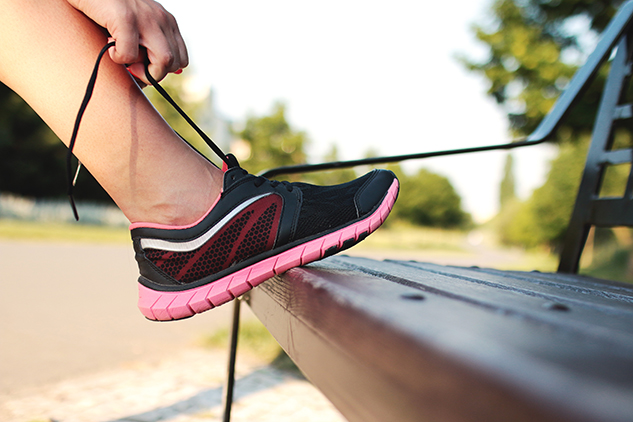The Do’s and Don’ts of Distance Running
Published on
02 Mar 2016

Call us on: (03) 9975 4133
Two of the biggest events on the international running calendar are approaching, with the Paris Marathon set for the 3rd of April and London Marathon taking place on the 24th of April. There's also the Great Ocean Road Marathon, which some of our very own Pure Physio team members are running. For those of you who have been lucky enough to secure a bib number in either of these events, good luck, happy running and safe travels!
These events attract many first-time Marathoners- the appeal of an international holiday is great motivation for many to endure the long training hours!
So, for all of you first time Marathoners out there, and also those of you who have completed the distance before but could use some extra advice/ tips to get you through read on to find about all the do’s and don’ts of running a Marathon!
DON’T:
- Buy a new pair of runners in the weeks leading up to the event.
If you’re running often enough to be capable of a marathon, you should replace your shoes every 6-12 months. Ideally, you should do most of your structured training (the 12-15 week lead up) in the shoes you’re going to run the event in. New runners take time to wear in and adapt to, and running a 27km training run in brand new shoes is not ideal. It may lead to injury or discomfort (not to mention awful blisters!) - Overtrain.
Listen to your body – if you’re feeling flat and tired, take a day off from your training plan. One missed session will not mean disaster. Rest up, and you’ll feel better for it the next. - Increase mileage too early in training.
This one can be tricky to avoid. Particularly if this is your first marathon, you don’t need to be doing 32km long runs 4 months out from the event. It’s a recipe for overtraining and overuse injury. - Ignore “niggles” – get them treated early.
It’s important not to ignore what may seem like insignificant pain at the time, as these “niggles” are generally an indicator that something is not right and will likely worsen given the high training loads you will be doing. Book an appointment to see a physiotherapist ASAP. Even if you are pain free, having a running assessment done by a physiotherapist is a great way to “prehabilitate” yourself before the training really ramps up. That is, predict potential injuries and prevent them before they have the chance to occur. Prevention is better than a cure! - Sacrifice speed-work.
Incorporate short, sharp, sessions into your training. This will improve your overall performance.
DO:
- Trial the gear you’re going to run in.
Ideally, well before the event to make sure it’s comfortable. Sure, new active wear is exciting and motivating, but saving it for the day without trialling first could result in unexpected chafe. - Compile a playlist of upbeat and fast-paced songs.
If you like listening to music while you run, have a “power song” ready to hit play on for when you feel you’re struggling. - Cross train!
Long distance running can be a very repetitive form of exercise, so continuing with other sports or activities will help you avoid boredom and burn out. - Strength train and stretch.
It’s important to still prioritise stretching and strengthening despite the long hours you’ll be spending training. Depending on the type of stretching and strengthening work you’re doing, it can help to prevent injury and even improve performance! Talk to your physio about this if you’re unsure. - Make friends with Vaseline!!
It works wonders for preventing and treating chafe! - Trial your sports gels and drinks in training.
Some of these can cause an upset stomach if you’re not used to them. You don’t want to be running to the bathroom feeling sick on the day! My personal favourite is the Endura grape flavour! - Time your gels.
If you wait until 2.5 hours into the Marathon to consume a gel, you’re likely already in a state of “glycogen depletion” and it’s too late! Ingest one gel every 30-45 minutes throughout the event, but again trial this in your longer training runs! - Ensure you are well hydrated in the days leading to up the event.
If you’re not someone who drinks water throughout the day, make sure to carry a bottle with you in the two-three days leading up to the event. Waiting until the night before or the morning of the run is too late! You can lose more than 2L of fluid during a Marathon and it’s going to be difficult to replace this during the race, so going in well hydrated is critical! - Carbo load the days before!
There is often debate surrounding how much/how far in advance/ what type, however as a general rule avoid anything too high in fibre the night before. The AIS recommend 7-12g/kg of body weight for 1-4 days before an endurance event combined with exercise taper. Previously, a “depletion” phase has preceeded this, however it has not been found to correlate with increased performance so is best to avoid! - Taper your training.
Your long runs should be decreasing in length in the two weeks leading up to the event, and the week of the event should be about making sure you’re as fresh as possible! Keep runs within the 4-5 days before the event to less than 5km. - Have fun!!!
At 36kms, you’ll be exhausted. It’s all worth the feeling you get crossing the finishing line, so try to enjoy every moment!


